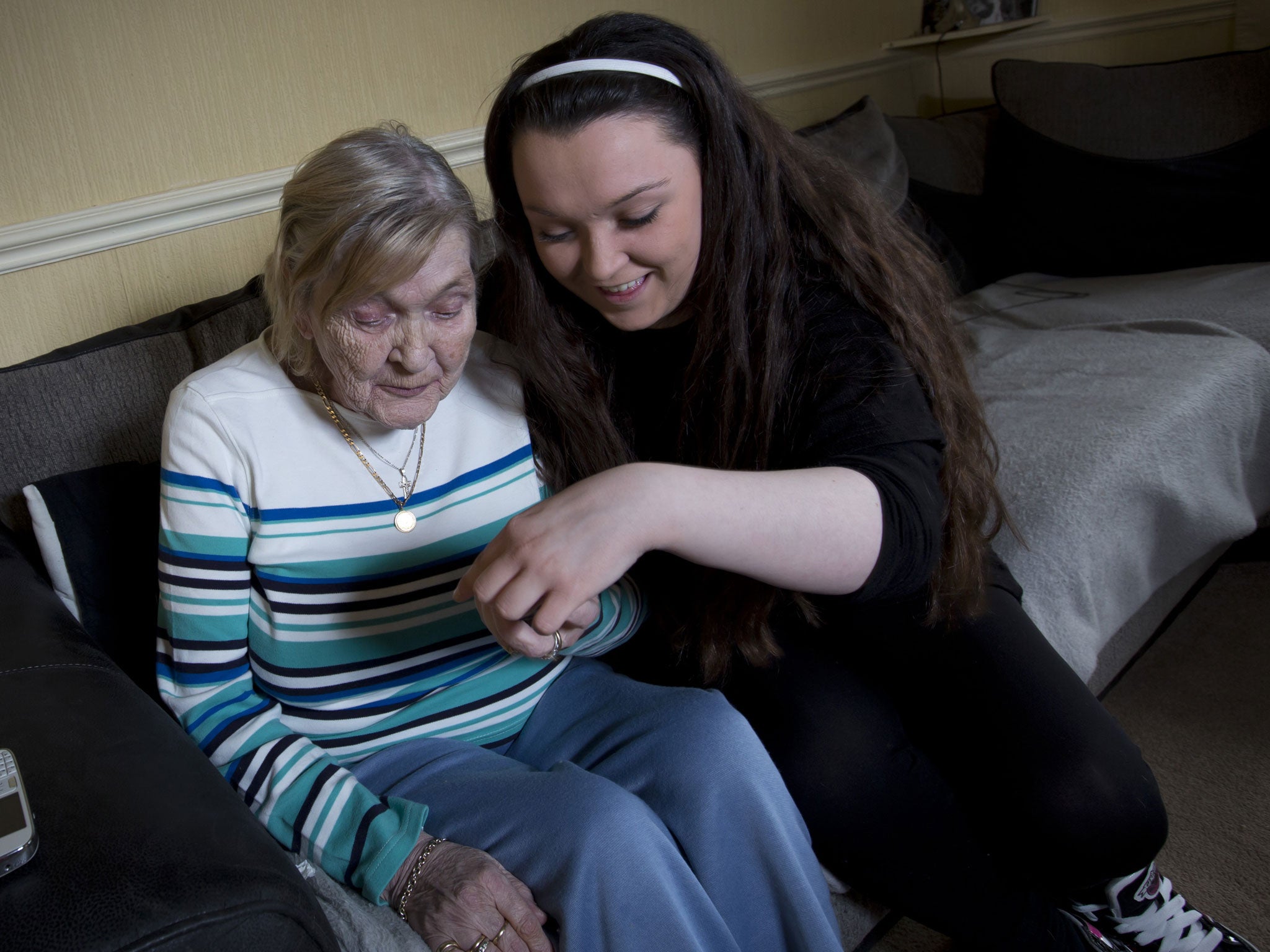180,000 children work as unpaid carers for relatives
Almost 10,000 five to seven-year-olds now work as carers, an increase of 80 per cent in a decade

Almost 180,000 unpaid child carers – some as young as five – are being used to fill Britain’s care gap, official figures have revealed.
Almost 10,000 five to seven-year-olds now work as carers for their relatives, an increase of around 80 per cent in a decade. More than 1,600 of these young children look after relatives for more than 50 hours a week, according to statistics released today from the 2011 England and Wales census.
The total number of children of all ages “missing out on their childhoods” to work as unpaid carers is up 20 per cent on the previous decade to nearly 180,000. Of these, nearly 16,000 provide more than 50 hours of care a week for siblings, parents and other relatives – and around 20,000 between 20 and 49 hours.
Nor are they just missing out on social lives – the impact of this work on children’s health and education is severe. More than 2,000 young carers have “bad” or “very bad” health, according to the census, while around 10,000 said it was “fair”. The Children’s Society’s chief executive, Matthew Reed, said: “Caring can cost children dearly. They are missing out on their childhoods and school, gaining fewer qualifications and job opportunities and therefore are less likely to earn a decent living in the future. We are calling for support for these children and their families to prevent them from caring in the first place.
“All children must be allowed to thrive and enjoy their childhoods.”
One in 20 child carers misses school to look after relatives, according to separate research for the Children’s Society also released today. Its study showed that child carers are one-and-a-half times more likely to have a long-standing illness, disability or special educational need than their peers.
Young carers also have significantly lower educational attainment at GCSE level – the equivalent to nine grades lower overall than their peers. A Department for Education spokeswoman said: “We know young carers need more help and we are supporting local authorities to do much more for these dedicated young people.
“We recently announced that young carers will be involved in the training of school nurses, so they know exactly what support they should offer.”
Sharon Hodgson MP, Labour’s shadow children’s minister, said: “Being a young carer can have a significant impact on the education and health of children and young people, which can follow them through the rest of their lives. It is therefore vital that all young carers are identified and given the support they need to cope with their responsibilities.”
Case study: ‘Nana and grandad come before friends’
Rhiannon Whiting, 16, from Wilmslow, Cheshire, is a carer for her grandparents Maureen Whiting, 71, and Peter, 66
My nana has spinal stenosis, so she can’t stand up for more than about three minutes, and my grandad has trouble with his breathing and uses a machine at night. I’ve lived with them since I was three and I started helping as a carer for them when I was 10. I don’t get much time to see friends; I put nana and grandad first. I only go to school for two hours on Tuesdays, Thursday and Fridays and I’m taking four GCSEs. My day starts helping Grandad get up and climb down the stairs, then I make him tea. I come home from school at 11 in the morning and make nana a drink, make sure she’s taken her tablets and clean up.”
Subscribe to Independent Premium to bookmark this article
Want to bookmark your favourite articles and stories to read or reference later? Start your Independent Premium subscription today.

Join our commenting forum
Join thought-provoking conversations, follow other Independent readers and see their replies